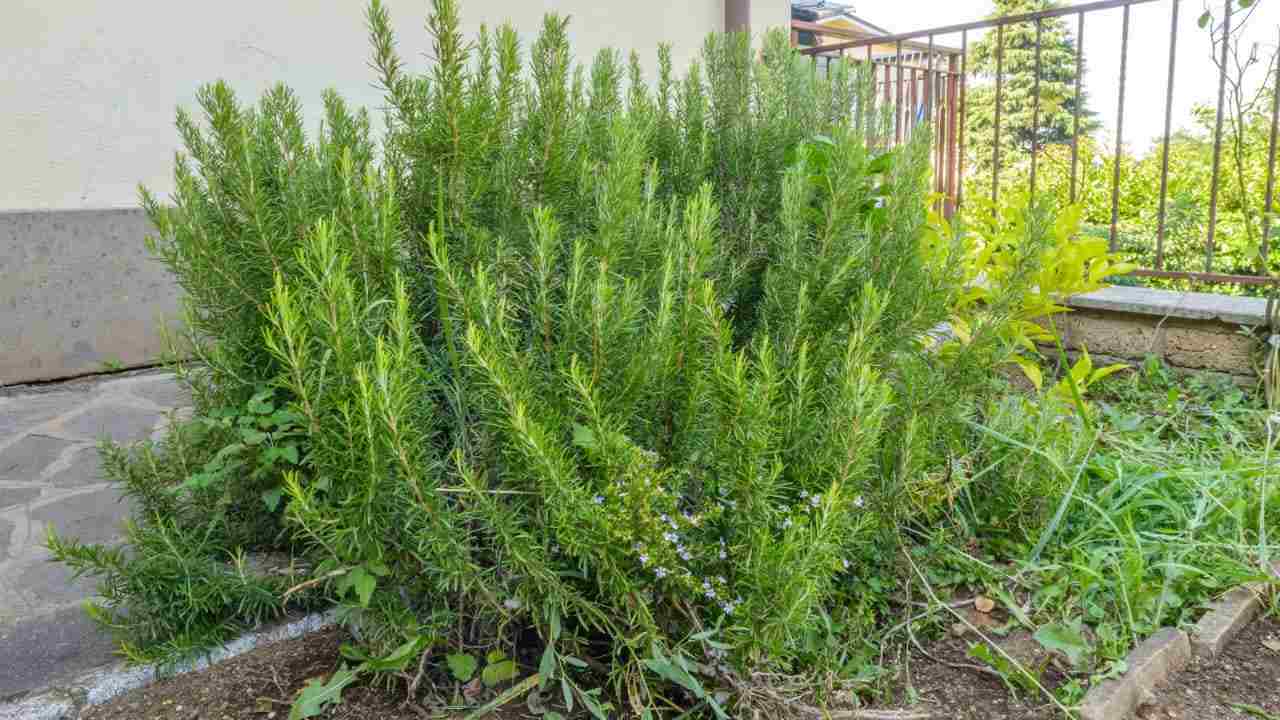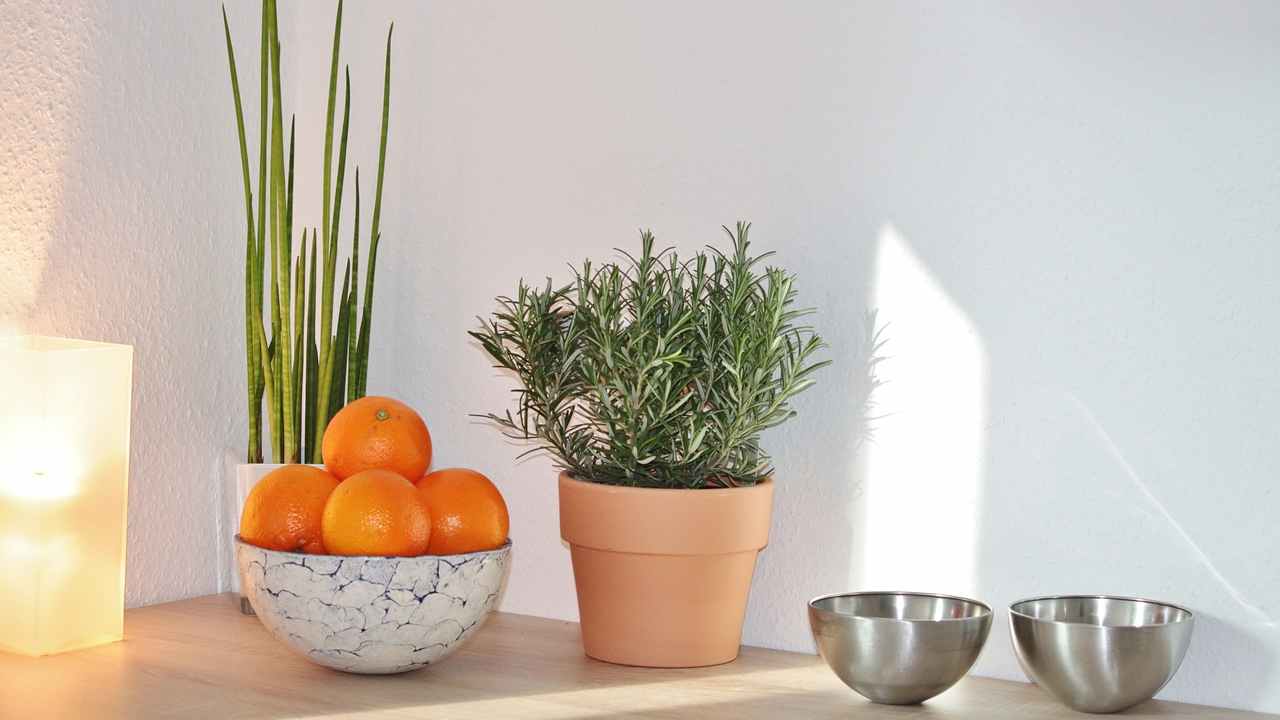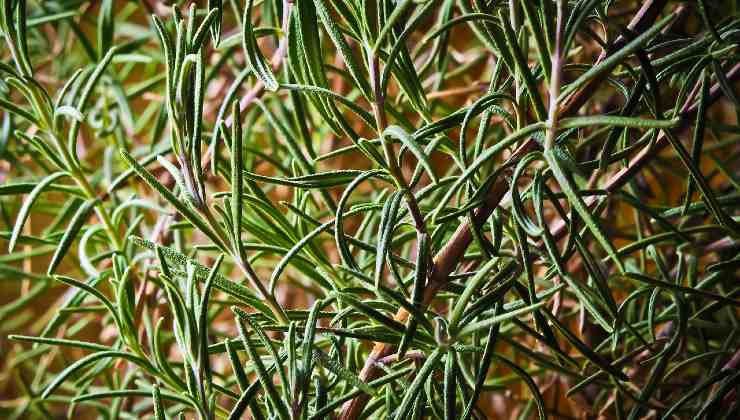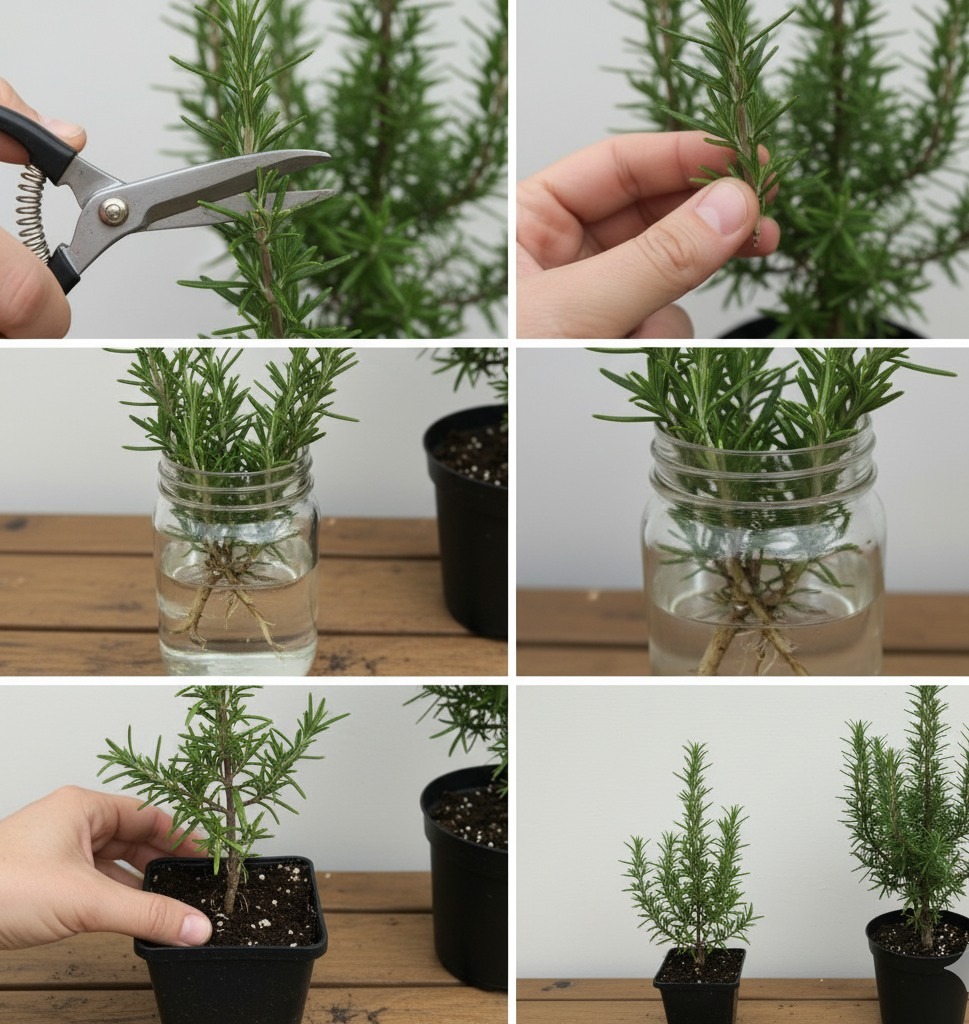Rosemary is a hardy and easy-to-grow herb. And yet there’s a trick to making it more lush and bountiful. Find out below.

Rosmarinpflanze
If you follow the rules that gardeners use, your rosemary may always be ready for use on your windowsill.
Rosemary: What is it for?
Rosemary has a wide range of uses and benefits, which is why it is one of the aromatic plants we most often plant on our balconies, windowsills and terraces. The plant has long been used both in cooking and in therapy , offering numerous health benefits and a wonderful aroma.
Rosemary is widely used in cooking because of its distinctive aroma and flavor . Its aromatic leaves can be used fresh or dried to flavor a variety of dishes, including roasts, poultry, potatoes, vegetables, breads, and sauces. It adds a touch of freshness and depth to many recipes.
Additionally, rosemary essential oil is used in aromatherapy for its stimulating and invigorating effects. It is believed to have properties that improve concentration, relieve stress, reduce mental fatigue, and promote mental clarity.
The pungent smell of rosemary can act as a natural insect repellent . You can rub rosemary leaves on your skin or burn some of them to keep unwanted insects away.
Although it is a fairly easy aromatic plant to grow, gardeners use some important tricks that we will tell you below.

Rosemary
How to grow it
The first secret of gardeners to always have a healthy and lush rosemary plant lies in the choice of soil . In fact, immediately after purchase, the seedling should be transplanted and placed in a larger pot with suitable soil. Rosemary thrives in well-drained, sandy soil with a pH between 6 and 8. Make sure the soil has good drainage capacity to avoid waterlogging.
Once this step is completed, the pot should be placed in full sun as this is an aromatic plant that needs at least 6-8 hours of direct sunlight per day to grow healthily.
An equally important factor is watering. It is a drought tolerant plant and prefers slightly dry soils. Water the plant moderately only when the soil is dry on the surface. Avoid overwatering the soil as overwatering can lead to root rot.
Pruning is also important to maintain a compact shape and encourage growth. Pruning in spring is especially important to remove dead or damaged parts after winter.

Lush rosemary
It does not require much fertilization . You can apply a slow-release fertilizer in early spring to provide light nutrition throughout the growing season.
